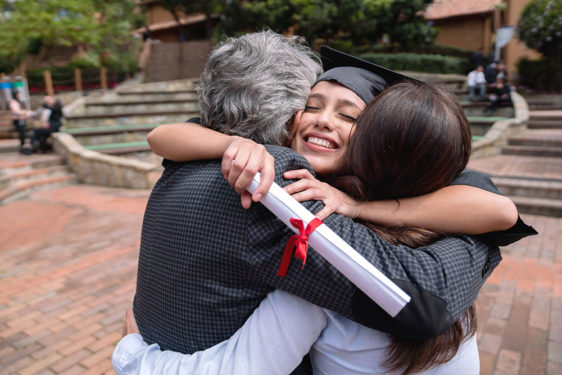
By Carolyn Woo
(CNS) – Common to most commencement speeches is the exhortation to approach life with boldness, to pursue one’s dreams, to live meaningfully, to honor one’s uniqueness and gifts, and to fight for the common good. The advice is definitely sound and seems to resonate with graduates.
Yet, if life is the guide, most will hold back: at least some of the time and to some extent. The reasons may be prudence, as fears can serve us well and check impulses. At the same time, prudence is frequently the cover for fear posing as a more user-friendly version of leg chains.
We should not be ashamed of our fears: We all have these. Jesus gave full expression to his when he wept in agony at Gethsemane. His fears are also told in the propositions presented by the devil in a desert empty not only of sand but also of assurances.
The temptations play on our most basic human needs: for sustenance as in baked and spiritual bread; for recognition and influence in whatever kingdoms, real or virtual, personal or professional by which we define ourselves; and for love and devotion. If these were not basic, they would not have power over us.
We may not voice our doubts, but they take up residence in our heads: Will I come up short? Empty? Wanting? Alone? Ordinary? Over four decades of experience with students, alumni and colleagues, I contend that responses to these doubts are far more powerful than talent, skills and diligence in determining our choices and eventual journeys.
Handling Your Fears
A friend shared with me that in an interview for a very important research fellowship that would change her area of focus and expertise to find solutions for a thorny medical problem, the evaluator asked, “Dr. X, how do you handle your fears?”
The issue is not a matter of what, but a matter of how: How do we engage our fears? How do we break their power over us? When do we accede? What makes us move forward without assurances?
When I left Hong Kong at 18 for college in the U.S., I wanted adventure. However, much more important than that was my desire to support my parents. To counter my doubts, hard work would be my currency. In the process, I discovered its supply would come from love for the family.
As I moved on and in everything that I did, I came to recognize that people wanted me to succeed. They mentored and tutored, opened doors, advised and cautioned, provided the training wheels when I needed these and removed them when I matured. I now know deeply that God sends people with their goodness and generosity to us, and vice versa, to answer prayers made to him.
But fears of inadequacy and not measuring up will not totally lose their power when dreams and meaning are directly or indirectly denominated in riches, power, influence or admiration minted by people and their institutions. We can only lose our fears when the above lose their primacy.
Missing explicitly in the commencement messages is to let love motivate our choices: love for families and friends, for people whose suffering is untenable and for a planet that is severely damaged by the way we live, make our living and achieve prosperity.
To love more deeply and broadly, why don’t we suggest changing ourselves instead of changing the world: giving more to charity, consuming less, reusing plastic, volunteering, listening more attentively, building bridges? Why don’t we call for casting a smaller shadow or becoming less as in John 3:30: “He must increase; I must decrease”?
Jesus faced his fears down by staying faithful to his mission and his love for the Father. This is the model he offers us.
Woo is distinguished president’s fellow for global development at Purdue University and served as the CEO and president of Catholic Relief Services from 2012 to 2016.
